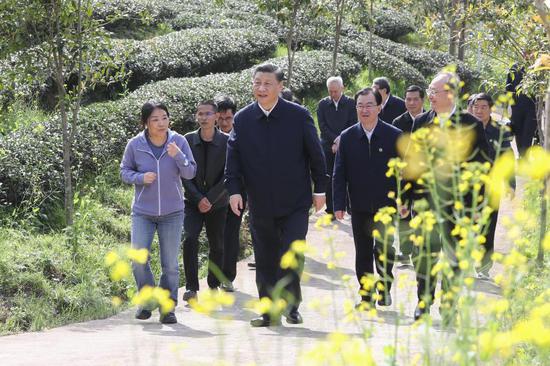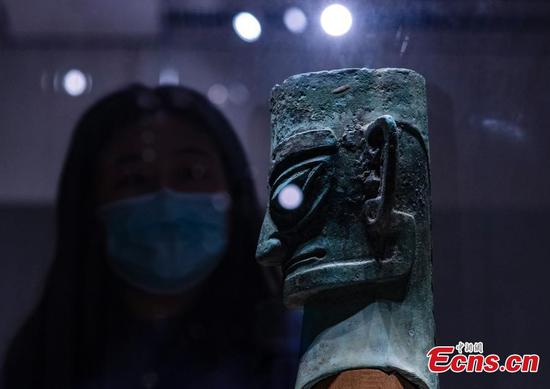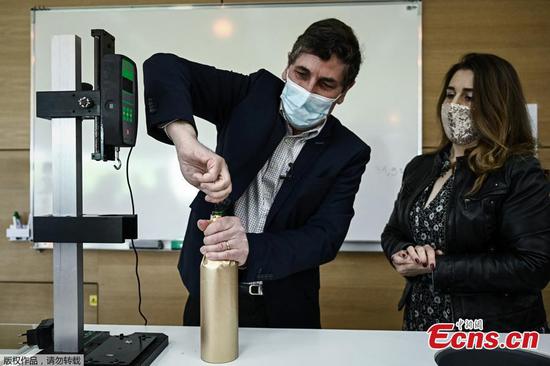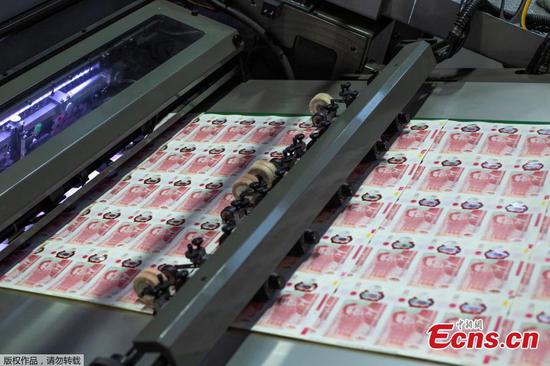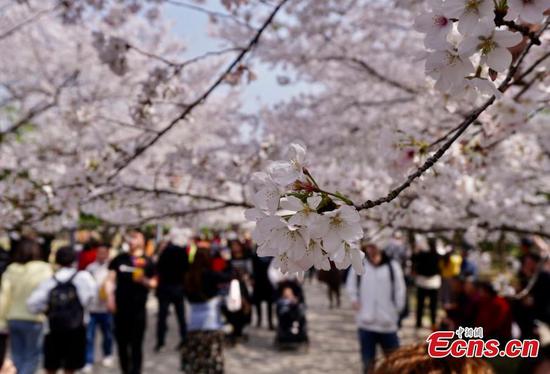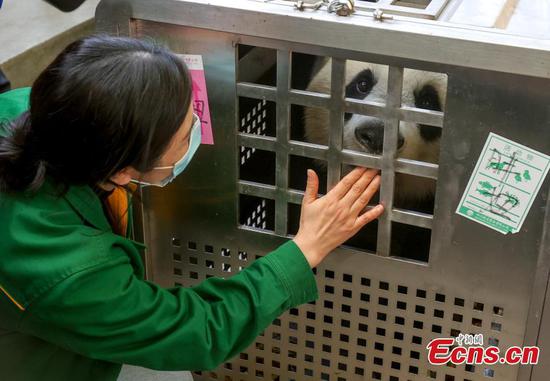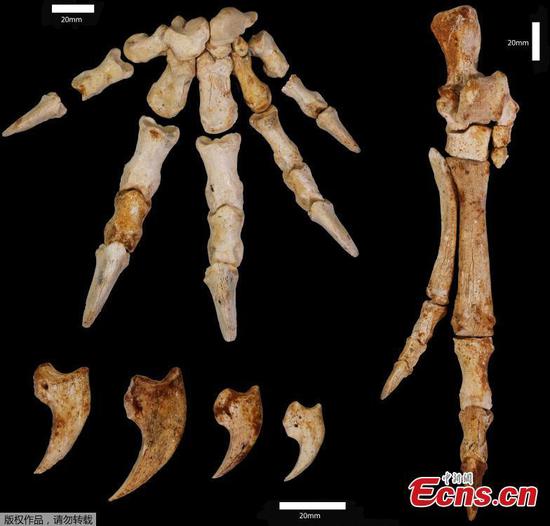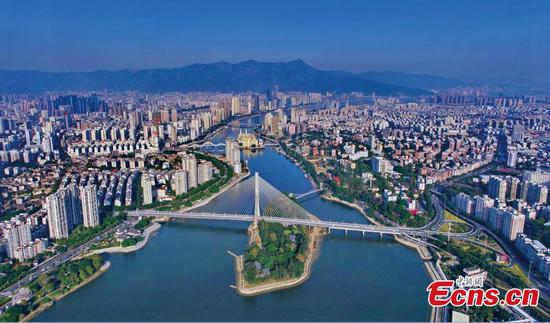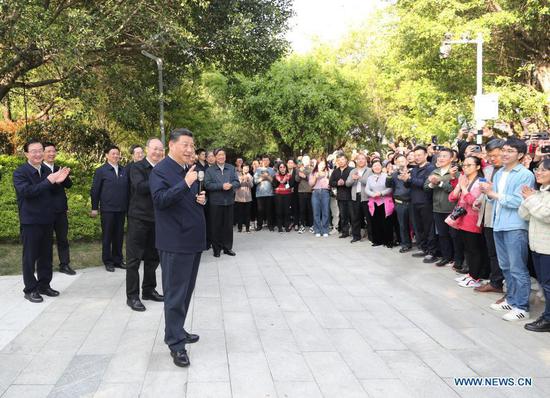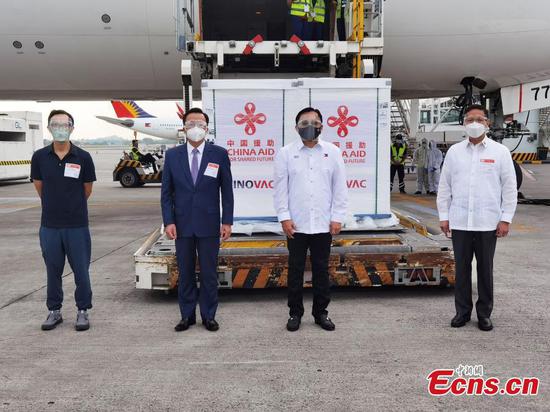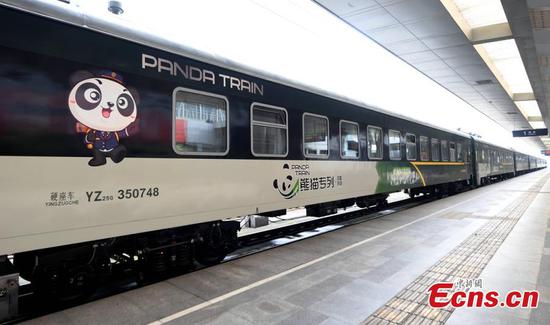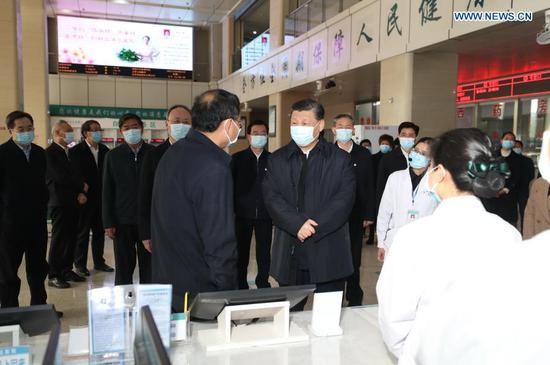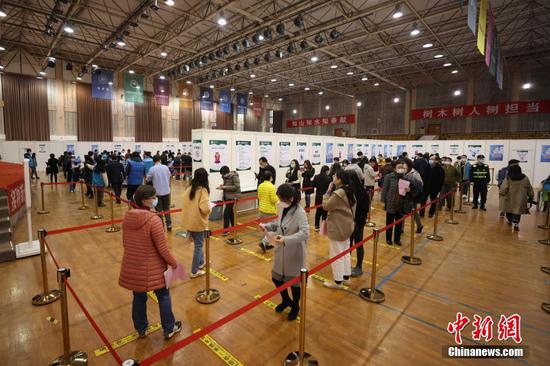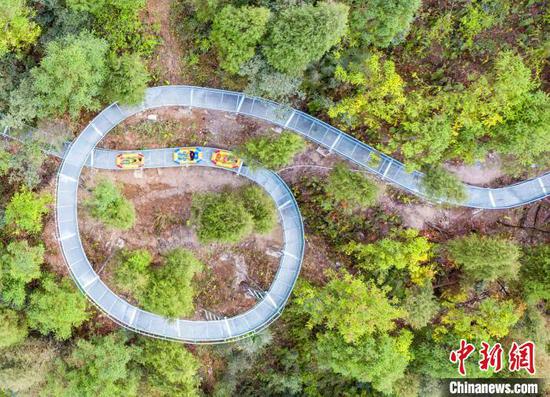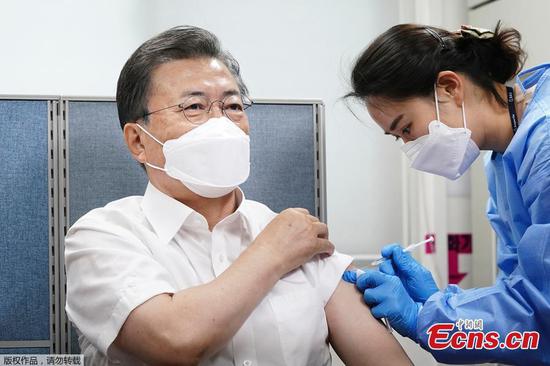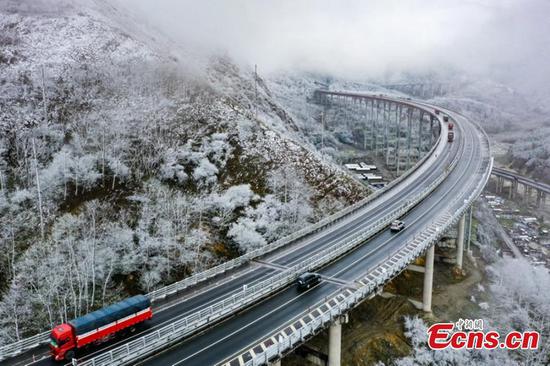
Visitors pass Bosch's booth during the second China International Import Expo in Shanghai in 2019. (Photo by WU JUN/FOR CHINA DAILY)
He also said China's goals for 2030 and 2060 will force the automobile consumption patterns and industrial structures in China to transform to electric mode from the policy level.
To seize such development opportunities, Bosch will provide diversified solutions from micro-hybrid to pure electric, and offer a comprehensive product portfolio for hybrid and electric vehicles, including motors, electric bridges, onboard charging and distribution units to the China market.
Hydrogen fuel cells are also one of the important new energy technologies that Bosch has distributed in China, Chen said.
With China still experiencing industrialization and urbanization, and holding high expectations of economic growth, the nation will face far greater pressures and challenges than developed countries, experts said.
"The low-carbon commitment requires China to make the transition from reaching its carbon peak to realizing carbon neutrality within 30 years, compared with the 60 years taken by most developed countries," said Zhao Ying, a researcher at the Beijing-based Institute of Industrial Economics, which is affiliated with the Chinese Academy of Social Sciences.
Concurred Denis Depoux, global managing director at Roland Berger."We expect a more precise agenda for the execution of this pledge in the coming years, while the 14th Five-Year Plan already has set a slightly more ambitious energy intensity reduction objective."
China's pledge will play a major role, domestically and internationally, in innovation to meet the objectives, Depoux said, noting this will in turn push State-owned enterprises and private companies, as well as multinationals, to not only abide by the zero-emissions target but actually innovate to claim leadership in emissions reduction technologies and services.
With China further pushing production efficiency of its manufacturing sector, ABB Group plans to seize more market share, given that demand for smart urban infrastructure and digital electrical solutions will continue to rise during the 14th Five-Year Plan period.
"Industrial energy efficiency, more than any other challenge, has the single greatest capacity for combating the climate emergency. It is fundamentally the world's invisible climate solution," said Morten Wierod, president of ABB Motion, a subsidiary of ABB Group specializing in motors, drives, traction converters, generators and mechanical power transmission products.
As the government reported that over 462,000 charging pillars were constructed for electric cars in China last year, considerable steps have already been taken to support the uptake of electric vehicles and renewable energy sources, he said.
ABB's fast-charging solutions have been deployed in more than 30 cities across China, supporting the country in building a future-oriented and sustainable transportation system.
It has also delivered electric, digital and connected solutions to the local cruise market and strong experience to support the China cruise market's demands, said Wierod.
ABB has set an ambitious target of helping customers, especially in its key markets, including Europe and China, to reduce their annual CO2 emissions by more than 100 megatons by 2030 worldwide. This is equivalent to the annual emissions of 30 million combustion cars.
For its part, tiremaker Michelin Group, which is also well known for its "stars" awarded to high-end, high-turnover restaurants and their chefs, is promoting sustainability-related concepts not only in manufacturing but in services.
The company unveiled the Michelin Green Star in its Guide Beijing 2021 for the first time in China late last year. It aims to highlight exemplary establishments at the forefront of a more sustainable approach to gastronomy.
In February, the French firm announced that it would achieve 100 percent sustainability of tire production materials in 2050, including the use of renewable, recyclable and bio-sourced materials.
Kamran Vossoughi, president and CEO of Michelin China, said:"From the main business of tires, we are gradually moving toward connected services and solutions, high-tech materials, hydrogen mobility, and customer experience business.
"We are also embracing digitalization to cope with the ever-changing market and seize more opportunities."












